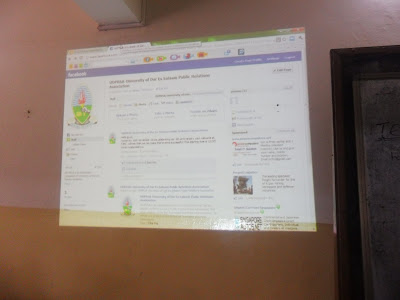I found it interesting and I share this as it is…………
As responses poured in, the overwhelming sentiment was that college GPA matters very little in professional success. While many college students stress over grades, those of us beyond academia and into our professional careers have seen how little it matters in comparison to experience, networking skills and the desire to grow.
Children go through school being taught that a grade is the determining factor in performance. But in the professional world, that’s not how it works. Your bosses won’t tell you which questions will be on the test. You don’t study information to be tested on it once in your job. Your college GPA is a combination of several factors but isn’t really the best indicator of how you’ll perform in the working world. We all know that person with perfect grades who struggles socially or that person who couldn’t care less about school but seems to have no trouble making great things happen in their life. Book smarts and street smarts are very different things.
Take your classes seriously. Do the work. Show up and learn something. Meet your professors. But I’m here to tell you, the GPA you leave college with doesn’t matter
. Here’s what does:
Knowing how you learn
Spend some time during college figuring out how you best learn and retain information. Some people need to see it, some need to hear it, some need to write it and some need to practice it before it sticks. As an employee, you’ll need to learn new things as you go, remember them and prove you’ve absorbed the information.
Spend some time during college figuring out how you best learn and retain information. Some people need to see it, some need to hear it, some need to write it and some need to practice it before it sticks. As an employee, you’ll need to learn new things as you go, remember them and prove you’ve absorbed the information.
Applying theory to real-life situations
It’s one thing to recite the 4 P’s of marketing or learn how the purchase decision funnel looks on paper, but things won’t always happen in the marketplace the way they do in your textbooks. Learn how to take fundamental information and proven best practices and apply them in new situations or projects. The real world will always throw new variables at you, so knowing how to adapt theory to life is crucial.
It’s one thing to recite the 4 P’s of marketing or learn how the purchase decision funnel looks on paper, but things won’t always happen in the marketplace the way they do in your textbooks. Learn how to take fundamental information and proven best practices and apply them in new situations or projects. The real world will always throw new variables at you, so knowing how to adapt theory to life is crucial.
Time management
Learn how much time you need to research, write a paper, get to your classes and jobs on time, fit a workout in your day and still have something of a social life. Learning how many hours you have in your day/week and how to divide them up to get everything done is a vital life skill. In your professional life, you’ll need to know how to manage your time to meet deadlines, tackle to-do lists and not want to bang your head against the wall in the process.
Learn how much time you need to research, write a paper, get to your classes and jobs on time, fit a workout in your day and still have something of a social life. Learning how many hours you have in your day/week and how to divide them up to get everything done is a vital life skill. In your professional life, you’ll need to know how to manage your time to meet deadlines, tackle to-do lists and not want to bang your head against the wall in the process.
Relevant professional experience
Jobs, internships, student organizations and volunteer projects in your industry will prepare you best for the working world. Do as much as you can to really work in your field during college and learn about what you want to do (or in same cases, what you don’t want to do). Your future employer will take your experience as the absolute best indicator for your potential in a new position.
Jobs, internships, student organizations and volunteer projects in your industry will prepare you best for the working world. Do as much as you can to really work in your field during college and learn about what you want to do (or in same cases, what you don’t want to do). Your future employer will take your experience as the absolute best indicator for your potential in a new position.
A portfolio proving you can produce work
Keep samples of your best work from classes and internships. Many employers will want to see your work before hiring you. If you’re not building a portfolio through things you’re required to do before you graduate, then produce these things on your own time. Practice writing articles, press releases, pitches, designing publications, compiling clip reports, research summaries or anything else you might be hired to do. Practice is important.
Keep samples of your best work from classes and internships. Many employers will want to see your work before hiring you. If you’re not building a portfolio through things you’re required to do before you graduate, then produce these things on your own time. Practice writing articles, press releases, pitches, designing publications, compiling clip reports, research summaries or anything else you might be hired to do. Practice is important.







